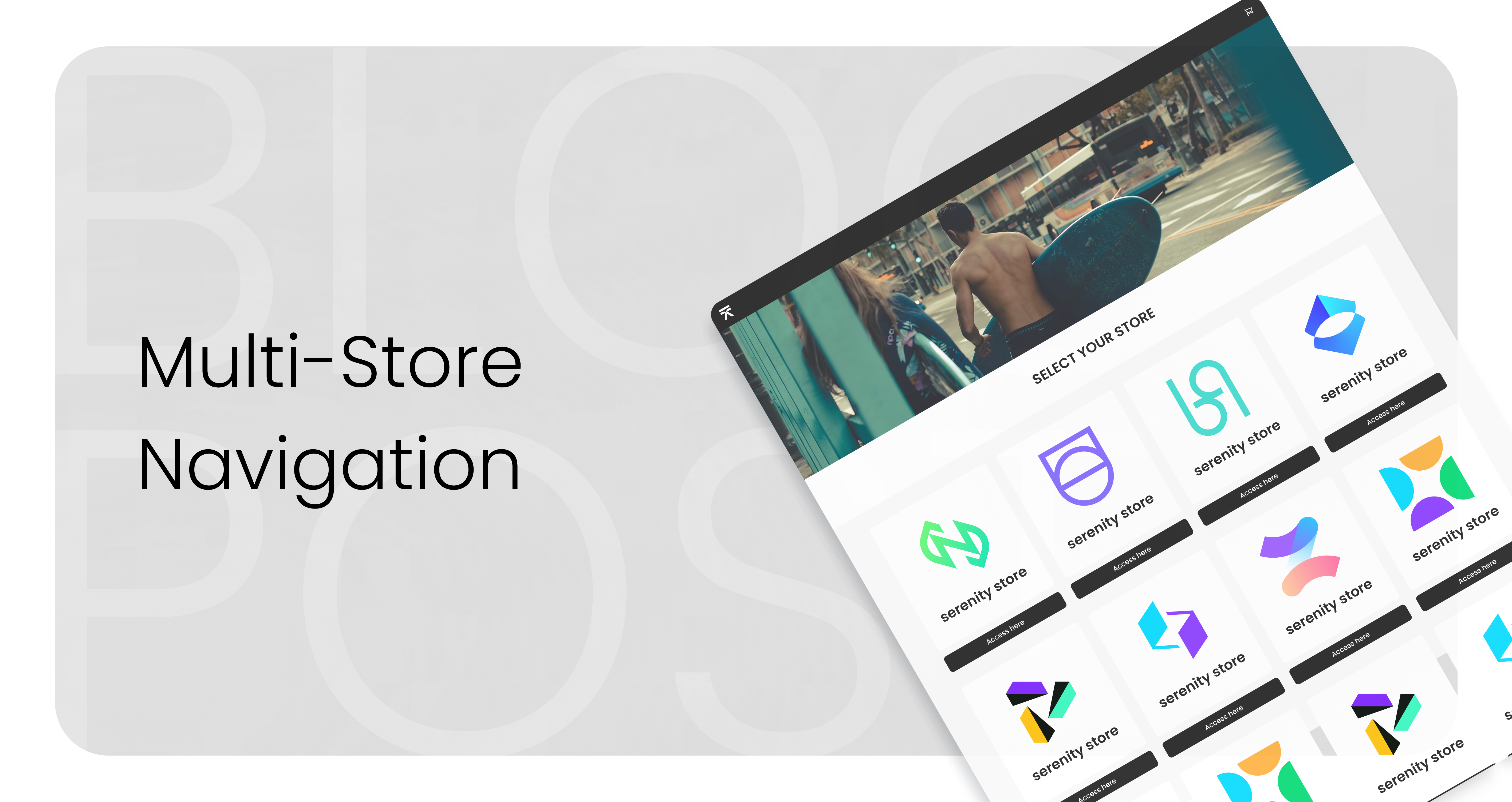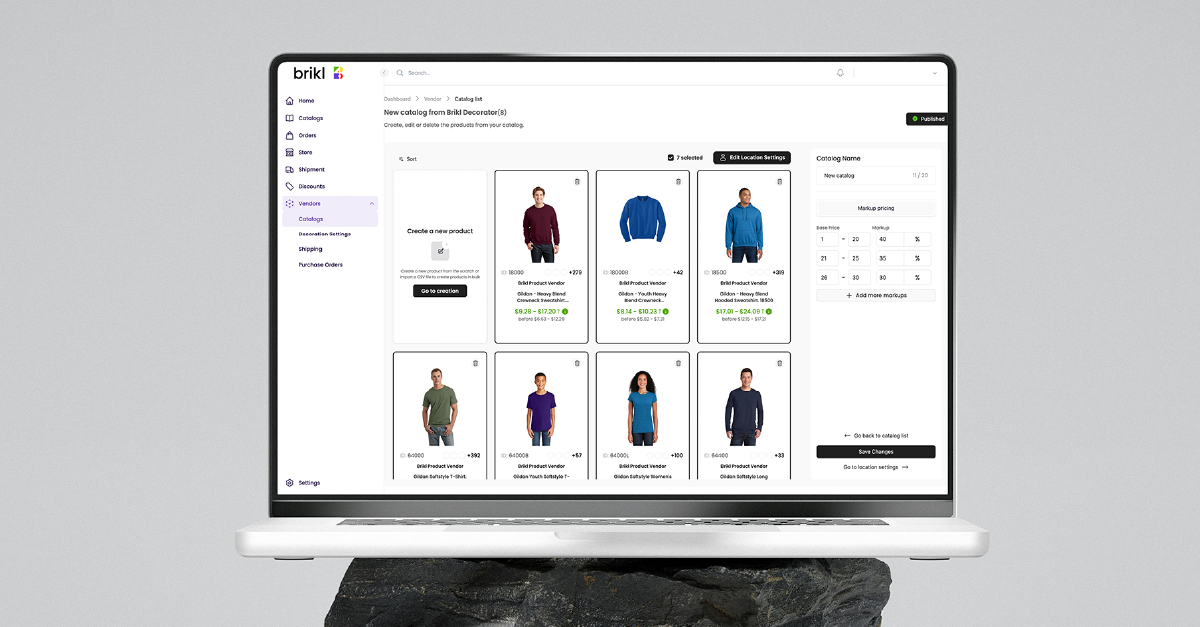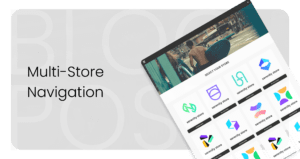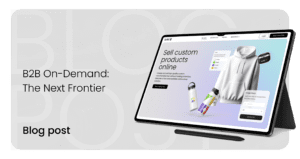For most companies in the United States and Europe, the announcement that Microsoft was closing down its Internet Explorer browser on June 16 was met with quiet ambivalence.
But the news caused a flurry of panic in government agencies and larger organizations in Japan that relied on the browser to support its internal tools. Despite knowing the change was coming, these organizations didn’t prepare for change until it had already arrived.
Why? Because upgrading operations, digital transformation, or digital process automation, whatever you want to call it, is a daunting and sizeable task that many companies don’t want to undertake until the bell tolls.
This could be too late for many businesses seeking to remain competitive in a digital-first world.
Pain Points in The Custom And Promotional Industry (and digital automation to the rescue).
The custom and promotional industry is our area of expertise as a company. As Dan Vermont, Global VP of Sales and Operations, comments, “Before onboarding with Brikl, our companies relied on multiple legacy platforms taped and nailed together to try to build the foundations and infrastructure of their businesses.”
But this was the state of play in an industry that didn’t have bespoke digital automation platforms created to resolve its specific and complex challenges. But those days are gone (Brikl exists!). Yet the hesitation to digitally transform remain. Let’s take a closer look at one of these complex, industry-wide challenges:
Long Store Setup Times
Whether companies are looking to set up team stores, company stores, fundraising stores, pop-up stores, or more, many businesses in this space face an average of 25 hours a week setting up shop. That’s time that could be dedicated to selling, strategizing, and scaling.
Reporting
Many businesses in this space are hobbled when it comes to taking an insight-led approach to the market and generating reports that are custom-made for their needs.
Embellishing and Decorating Designs
Designers in custom and promotional businesses spend inordinate amounts of time embellishing single products, one by one, using mainstream design software, not design tools or processes geared towards their niche challenges.
Order Management
Custom and promotional businesses frequently receive orders and feedback via email and spreadsheets, which can make keeping track an administrative nightmare.
User Access and Permission Settings
Personalization is everything in e-commerce, but so is security. Keeping your company store, team store, or microsite as relevant as possible drives sales. But you also need to ensure only nominated people have access to managing it.
Brikl’s next-generation functionality reconciles these pain points. However, there’s still hesitation when it comes to digital automation.

If it’s Broken, Fix it: What's Stopping The Benefits of Digital Process?
In the custom and promotional industry, there are several reasons preventing companies from improving their digital infrastructure and feeling the benefits of digital process over time-consuming manual operations:
Cost
Let’s start with the biggest elephant in the room. According to Enterprise Talk, “An average digital transformation spend increased from $27 million per company in 2019 to $27.5 million in 2020”.
And let’s be honest, not all digital automation efforts are successful. This leads to businesses being intimidated by the prospect of continual and crippling investment, especially when it comes to integrations.
In the custom and promotional space, Brikl acknowledges the considerable upfront cost involved in digitizing operations by absorbing all costs for enterprise customers, saving enterprise-level businesses between $25,000 and $ 1,000,000.
“If 2020 has taught us anything. It’s that custom and promotional businesses need to stay agile to be competitive or risk being eliminated. We’re committed and able to offer a technology partnership that supports and safeguards our businesses against whatever tomorrow has in store for them.”
Maarten Boone, Brikl CEO.
An increasing number of cross-industry companies acknowledge the importance of technology adoption post-COVID to give them the insights they need to peek around corners and spot dangers before they arrive on their doorstep.
When managed properly, digital transformation is the most powerful strategic move a business can take to mitigate threats in a new and volatile world. This brings us to our second obstacle.

Evangelism and Commitment
Digital automation is often a company-wide effort that impacts every employee in big and small ways. That’s why it’s incredibly important to ensure the following:
Have a single vision, objective, or target in mind that unites everyone across the company.
Then have department-specific benchmarks that can be realistically hit using the new technology.
Nominate cross-functional evangelists who can stress the importance of staying on course with their teams.
These software or platform ambassadors must demonstrate genuine buy-in and resilient commitment to be able to motivate employees around them.
Periodically check the temperature across your company to address any issues or concerns.
Or help share success stories from adoption that your team may be encountering.
Work with account managers on the platform side who are as committed to your vision and objectives as you are.
And work hand in hand with you to troubleshoot present and potential hurdles.
At Brikl, it isn’t just our account managers that have a success mindset when it comes to custom and promotional businesses. Brand ambassadors can be found throughout the company, from the leadership team to engineers and the marketing team.
“We’re not just a technology platform but your technology partners through and through. A platform is faceless and functional, whereas a partnership is human and comes with personal investment and commitment. We’re experts in the market, in our technology, and the potential that both hold for scaling and skyrocketing your business. We love combining the sincere empathy, affection, and straight-talking honesty of a mom and pop business with next-generation tools unlike any in existence today”.
Jason Reinhardt, Brikl CCO.

Familiarity
Even if existing systems aren’t fit for purpose, it’s easy to get used to inefficiencies.
Despite knowing that time literally equates to money, many businesses, such as the ones highlighted in the introduction of the article, become familiar with antiquated systems, even though they know there are better ones out there that save time, money, and effort for employees across their organization.
Unfortunately, there isn’t an easy solution to a stubborn mindset. Ultimately, digital process automation is a journey with a tangible destination. However, as described in our previous points, commitment underpins success.
There’s a way around someone’s literal familiarity using a platform: making the user interface as easy to use as possible. For example, Brikl’s system has been designed to offset familiarity with comfort by making it drag-and-drop to do most things, such as create branded MicroStore that serve as company stores, team stores, fundraising stores, event pop-ups, and more.
There’s no coding required to perform any function across the platform and the learning curve, as demonstrated by the training and onboarding process, is exceptionally short.
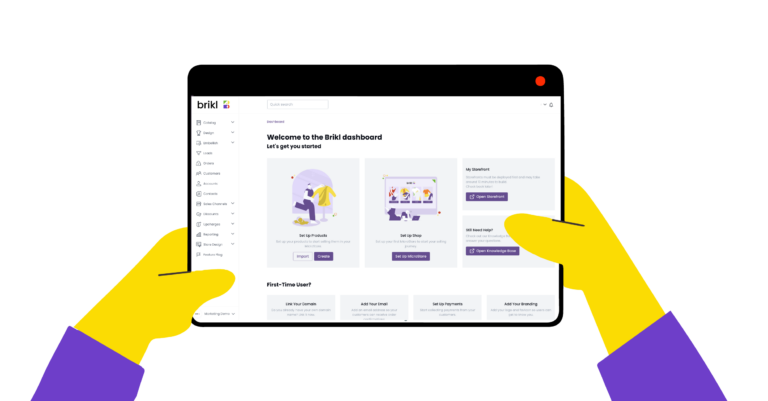
Resource Scarcity
We hear businesses in custom and promotional industry use words such as “painful,” “demotivating,” and “soul-crushing” when describing the tasks that have become their daily reality. All while labor shortages continue to chip away at existing workforces.
Time and staff are two exceedingly precious resources in a business that many won’t commit to an ongoing digital automation process while maintaining business-as-usual operations. But this mindset is like trying to guess what a picture looks like from a single puzzle piece.
Ask yourself how digital automation can free up time, effort, and cost:
What could your business do to safeguard itself if it had the data and analytics it needed to make detailed and insight-driven predictions?
What would your employees do with 8-10 hours back a week?
What improvements could be made with increased sales in your first year of using the platform?
How attractive are your current systems and operations to a young workforce? With Gen Z entering the workplace, have you done everything you can to make your company attractive to young, tech-savvy employees who rely on automation in their day-to-day?

In conclusion, digital automation is an undertaking that requires continued focus on the end objective to succeed, but once implemented, will deliver consistent results and agility that will protect businesses well into the future.
Take this research from MIT Center for Information Systems Research (CISR) for starters:
“Findings from a recent Avanade survey of 1,150 global decision-makers, conducted by Vanson Bourne, expand on MIT CISR’s perspective and provide insights into the potential impacts of digital transformation, as well as core intersection points such as intelligence, strategy, efficiencies, experiences, and innovation.
On average, respondents in the survey expected an ROI of 17% due to their digital transformation efforts. Organizations expect digital transformation to impact their business in a number of ways, including:
-
Reducing costs by 10%
-
Increasing productivity by 11%
-
Increasing business growth by 10%”.
Through digital process automation, these figures will only increase over time as insight-powered strategy, employee comfort, increased revenue, and time savings pave the way to organizational success.
If you’re a custom or promotional business or supplier looking to start your digital transformation journey, partner with the best solution on the market: Brikl. Book your demo now.

